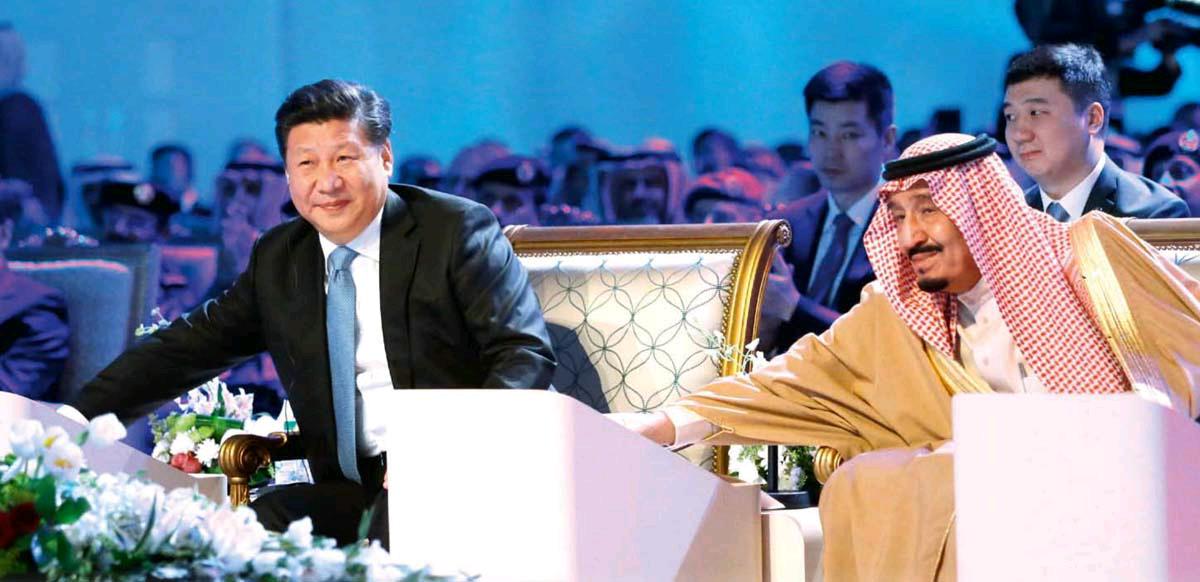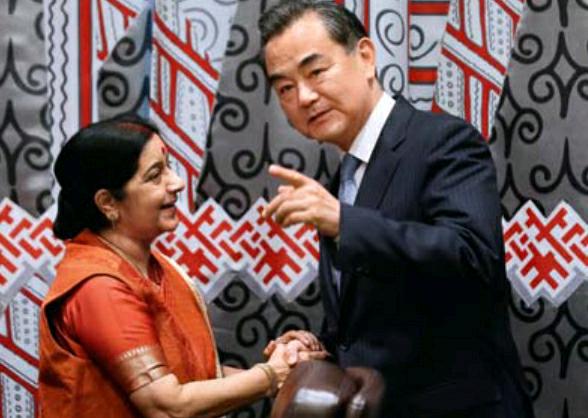China’s 2016 Diplomatic Roadmap
2016-03-16byJiaXiudong
by+Jia+Xiudong
This year will play a key role in Chinas deepening economic adjustment and transformation. China will also see new acceleration of adjustment and transformation of international configuration. In 2016, not only will Chinas diplomacy usher in its domestic deepening reform, it will contribute greatly to further elevating Chinas international standing and promoting global peace and development.
Since the new Chinese leadership came into power three years ago, it has delivered a clear global layout of its diplomacy. Over the last three years, Chinese President Xi Jinping paid 19 visits to countries across the continents of Asia, Europe, Africa, the Americas, and Australia, laying a big-power diplomatic framework featuring Chinese characteristics and reinforcing and tightening its partnership network across the entire planet.
Regionally speaking, room for growth remains in West Asia and North Africa, which will be likely the new power points for Chinas diplomatic efforts in the Middle East in 2016 due to its important strategic interests and these countries great expectation for Chinas constructive role in regional affairs.
Today, stability and management of relationships with neighbors still dominate Chinas overall diplomatic policies. In 2016, Beijing will continue its endeavor to build a framework for relationships between major countries on the basis of friendly interaction and win-win cooperation, and broaden its mutual-beneficial cooperation with developing countries.
This year marks the 25th anniversary of the establishment of the relationship between China and the Association of Southeast Asian Nations (ASEAN), an opportune time to upgrade the dynamics between the two. The first leaders meeting of the Lancang- Mekong River Cooperation was held, further helping accelerate social and economic development as well as sustainable growth in ASEANs member countries. Revitalized cooperation between China, Japan, and South Korea will kindle rare chances for further expansion of cooperation. China will double its efforts to enhance its coordination with India during this years BRICS Leaders Meeting planned for India. Beijing will continue supporting the process of political reconciliation and economic reconstruction in Afghanistan.
The United States will hold a presidential election in 2016. Both China and the United States place a high priority on the stability and new progress in their relationship. Chinas relationships with Russia and the EU are free of pending major issues, and focus is on how to reach new heights.
Thanks to the establishment of bilateral and multilateral channels and platforms in 2015, China has announced a series of wide and far-reaching influential proposals and plans, and reached broad consensus with involved countries and organizations. Notable early results are already being seen as greater planning efforts unfold. The year 2016 will undoubtedly see “actual action” in Chinese diplomacy – the transformation of proposals and plans into action which in turn produces results.
The Silk Road Economic Belt and the 21st-Century Maritime Silk Road (Belt and Road Initiative) top the long list of great projects, a highlight of Chinas 2016 diplomacy. As of today, China has reached consensus with more than 60 countries, many of which have signed cooperation agreements and eagerly await enactment.
Cooperation aimed at enhancing production capacity became a new growth point for Sino-foreign cooperation in 2015, during which time China signed cooperative agreements with more than 20 countries and established special funds of US$30 billion for Latin American countries, a mutual fund of US$20 billion shared by China and Brazil, and the first packaged fund worth US$10 billion shared by China and Central Africa, forming an international productivity cooperation system that covers Asia, Africa, Latin America, and Europe. Nevertheless, great efforts are needed to execute the projects.
Furthermore, free trade agreements between China and South Korea and Australia will go into effect. Intense follow-up lies ahead after updated negotiations on the trade agreement between China and ASEAN concluded, signaling great progress in regional comprehensive economic partnership.
Whatever changes lie ahead for the global governance system, one thing is certain: China will participate enthusiastically and plays a constructive role. China is committed to enhancing global governance and promoting institutional reform to better meet growing global challenges.
In many ways, China has developed a stronger will to actively participate in global governance and reaped a bumper harvest in the early stages of its efforts. In 2015, it played a major role in establishing the Asian Infrastructure Investment Bank, drafting the UNs 2030 sustainable development agenda, and coordinat- ing adoption of the Paris Agreement on Climate Change. In 2016, China will move its global governing philosophy forward with joint discussion, multilateral construction and sharing resources.
This year, China will perform its inaugural hosting of the G20 summit, a perfect opportunity for the country to play a lead role in global governance. The Chinese government attaches great importance to the event. The G20 has been widely recognized as a major platform for international economic cooperation, one that balances global economic governance. As host country and one of the troika, China will contribute heavily to policy coordination and greatly influence global economic governance.
Coordination will focus on balancing relationships between nations and international organizations, exploring new sources for global economic growth, mapping out plans to address economic puzzles, and blazing new trails in economic and financial governance globally.